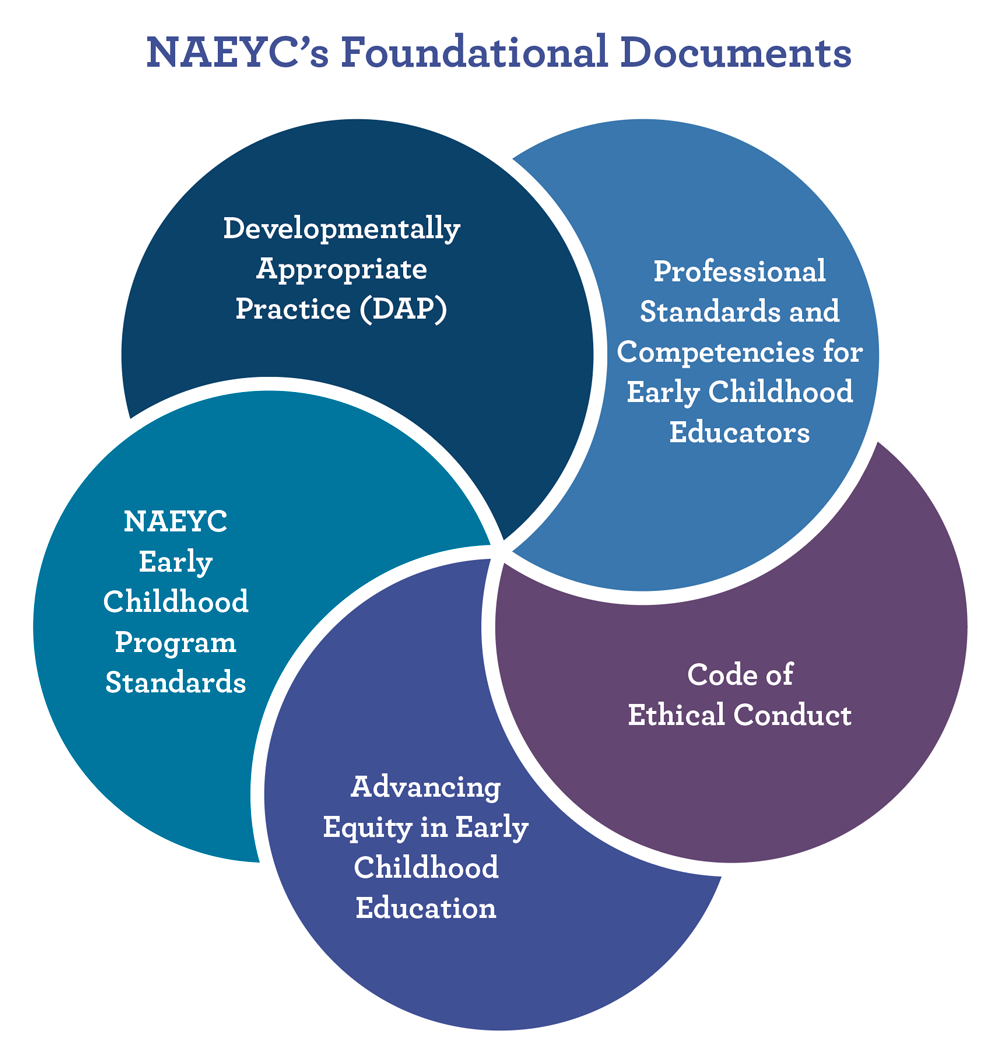Advancing Equity: Purpose

You are here
This position statement is one of five foundational documents NAEYC has developed in collaboration with the early childhood profession. With its specific focus on advancing equity in early childhood education, this statement complements and supports the other foundational documents that (1) define developmentally appropriate practice, (2) set professional standards and competencies for early childhood educators, (3) define the profession’s code of ethics, and (4) outline standards for early learning programs.
These foundational statements are grounded in NAEYC’s core values that emphasize diversity and inclusion and that respect the dignity and worth of each individual. The statements are built upon a growing body of research and professional knowledge that underscores the complex and critical ways in which early childhood educators promote early learning through their relationships—with children, families, and colleagues—that are embedded in a broader societal context of inequities in which implicit and explicit bias are pervasive.

Advancing equity in early childhood education requires understanding this broader societal context, these biases, and the ways in which historical and current inequities have shaped the profession, as they have shaped our nation. The biases we refer to here are based on race, class, culture, gender, sexual orientation, ability and disability, language, national origin, indigenous heritage, religion, and other identities. They are rooted in our nation’s social, political, economic, and educational structures. Precisely because these biases are both individual and institutional, addressing structural inequities requires attention to both interpersonal dynamics—the day-to-day relationships and interactions at the core of early childhood education practice—and systemic influences—the uneven distribution of power and privilege inherent in public and private systems nationwide, including in early childhood education.
No single individual, leader, or organization has all the answers related to equity. NAEYC presents this statement after significant reflection and with humility and awareness of our own history and limitations, in keeping with our core belief in continuous quality improvement. In this statement, we share our commitment to becoming a more diverse, high-performing, and inclusive organization serving a more diverse, high-performing, and inclusive profession. Our goal is to nurture a more diverse and inclusive generation of young children who thrive through their experiences of equitable learning opportunities in early learning programs. We commit—both individually and collectively—to continuous learning based on personally reflecting on how our beliefs and actions have been shaped by our experiences of the systems of privilege and oppression in which we operate and based on respectfully listening to others’ perspectives. Although this statement may be useful to an international audience, we caution that it is based on the context of early childhood education within the United States. In the spirit of learning we have included a list of definitions of terms, many of which are referenced in the document, as well as others that are often used in equity discussions.
This position statement outlines steps needed to
- provide high-quality early learning programs that build on each child’s unique individual and family strengths, cultural background, language(s), abilities, and experiences and
- eliminate differences in educational outcomes as a result of who children are, where they live, and what resources their families have.
The document begins with the statement of NAEYC’s position regarding the importance of equity in early childhood education. It then provides recommendations for advancing equity, beginning with recommendations for self-reflection that apply to everyone. Specific recommendations are also provided for early childhood educators; administrators of schools, centers, family child care homes, and other early childhood education settings; facilitators of educator preparation and professional development in higher education and other spheres; and public policymakers. The recommendations are followed by a synthesis of current early childhood education research through the lenses of equity and NAEYC core values; this discussion of evidence identifies principles of child development and learning and how they are impacted by social-cultural contexts.